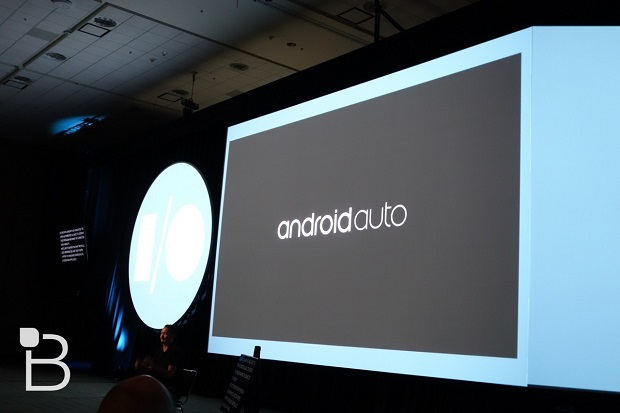The Korean company’s collaboration with Google extended to include the manufacture of connected car systems for the Android Auto platform.
Google announced the launch of the Android Auto platform last week, at its annual I/O conference, but not much is known about this infotainment system that’s meant to compete against Apple’s CarPlay. Android Auto will provide quick access to music, navigation controls, messages and other phone related features. Google mentioned that it now has 40 partners in the Open Automotive Alliance, and 25 currently unknown car brands that will sport the Android Auto platform in the very near future.

As if the number of unknown variables wasn’t great enough, it’s not even known what LG will manufacture for Google’s infotainment system, but one thing is certain, though. Google will hold tight to its own user interface and won’t allow any of the hardware makers to use their own skins. The search giant intends to impose a standard UI for its new platforms.
Android Auto will be pretty much useless without an Android smartphone. However, each Android device manufacturer has its own apps and services, and to ensure a minimal compatibility, LG and others might have to tinker a bit with the user interface.
Jong-rak Lim, VP and head of In-vehicle Infotainment Development at LG Electronics’ Vehicle Components Company, pointed out that “As a top technology company with a strong mobile business, LG has a great deal to contribute to the connected car space. LG will strive to strengthen its cooperation with OAA partners to bring connected vehicles to consumers sooner rather than later.”
Even though the first cars equipped with the Android Auto infotainment system will start shipping out this year, LG’s connected car components won’t be commercially available till early next year.
It certainly looks like we might get smart cars in the future, and by that I don’t simply mean cars that only drive themselves, but that can respond to voice commands, regardless if the instructions refer to music playback or to replying to text messages.
I’m rather sure that LG‘s collaboration with Google has only just begun, and that such devices as the Nexus 4 and 5, as well as the upcoming Android Auto, will cement this relationship.
Be social! Follow Walyou on Facebook and Twitter, and read more related stories about how Google’s self-driving cars can understand hand gestures, and Google’s Projected Mode, the initial name of the infotainment platform.










